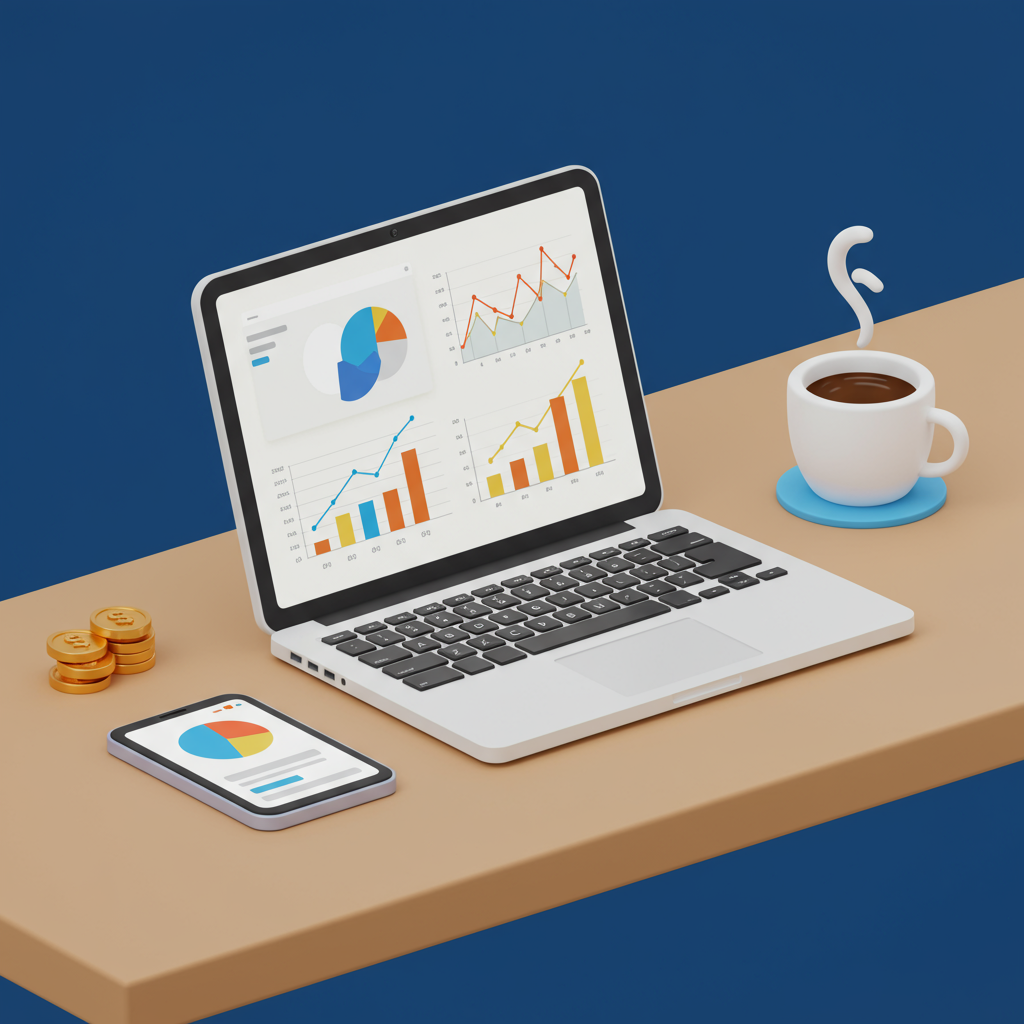Discover how the right tools can transform your e-commerce accounting, freeing up valuable time for growth.
As a Shopify merchant, I know firsthand the thrill of making a sale.
There’s nothing quite like seeing those orders roll in.
But with every sale, every refund, and every payout, comes a less glamorous, yet absolutely crucial, task: bookkeeping.
For a long time, I struggled with managing my finances.
Spreadsheets became a tangled mess.
Reconciling bank statements felt like solving a complex puzzle.
I spent countless hours trying to categorize transactions.
This was time I could have spent on marketing, product development, or customer service.
It was clear I needed a better system.
That’s when I discovered the power of dedicated Shopify bookkeeping apps.
These tools aren’t just about crunching numbers.
They are about reclaiming your time and gaining clarity over your business’s financial health.
Let me share how these apps have revolutionized my approach to e-commerce accounting.
The primary benefit, without a doubt, is automation.
Manual data entry is a huge time sink.
It’s also prone to human error.
Bookkeeping apps integrate directly with your Shopify store.
They automatically pull in sales data, refunds, shipping costs, and even transaction fees.
This means no more manually typing in every order.
Another significant advantage is accuracy.
Automated systems reduce the risk of mistakes.
This ensures your financial records are precise and reliable.
Accurate records are vital for making informed business decisions.
They are also essential for tax season.
Speaking of taxes, these apps are a lifesaver.
They categorize income and expenses.
They often generate reports that are ready for your accountant.
Some even help with sales tax calculations and remittances.
This dramatically simplifies what can be a very stressful period.
So, what kind of apps should you be looking for?
First, consider comprehensive accounting software integrations.
Think QuickBooks Online or Xero.
These are robust platforms that offer a full suite of accounting features.
They handle everything from invoicing to payroll.
Many have direct integrations or third-party connectors specifically for Shopify.
Then there are Shopify-specific bookkeeping solutions.
These apps are designed from the ground up for e-commerce.
They excel at breaking down Shopify payouts.
This includes separating income from fees and other deductions.
This level of detail is incredibly helpful for reconciliation.
You might also look for apps that specialize in expense tracking.
Keeping tabs on every business expense is crucial.
These apps often allow you to snap photos of receipts.
They then automatically categorize the expense.
Sales tax automation apps are another category worth exploring.
If you sell across different states or countries, sales tax compliance can be a nightmare.
Apps like TaxJar or Avalara automate these complex calculations.
They ensure you’re collecting and remitting the correct amounts.
When choosing an app, I always recommend assessing your specific needs.
Are you a small, growing store, or a high-volume operation?
What’s your budget?
Do you need multi-currency support?
How important is inventory valuation to your reporting?
Look for user-friendliness.
The best app is one you’ll actually use consistently.
Excellent customer support is also a must.
You’ll inevitably have questions during setup or ongoing use.
Once you’ve chosen an app, take the time to set it up correctly.
This initial investment of time will pay dividends.
Regularly review your financial reports.
Don’t just set it and forget it.
These reports offer valuable insights into your business performance.
Finally, consider consulting with an accountant.
Even with the best apps, professional advice is invaluable.
They can help you optimize your setup.
They can also ensure you’re fully compliant with all regulations.
Implementing the right bookkeeping app has been a game-changer for my Shopify store.
It has freed me from the drudgery of manual data entry.
It has given me peace of mind knowing my finances are in order.
Most importantly, it has given me back precious time.
Time I now dedicate to growing my business.
Time I spend connecting with my customers.
Time I use to develop new products.
If you’re still wrestling with spreadsheets, I urge you to explore these solutions.
They are an investment that truly pays off.
What are your thoughts on this article?
Have you tried any of these apps, or do you have other recommendations?
I’d love to hear your experiences.






